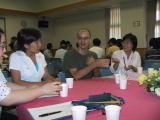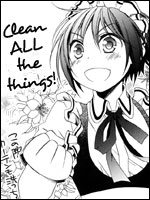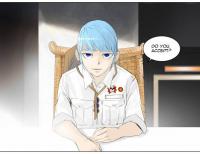Fluency. I'm a proofreader and that's definitely what I strive for when I make my corrections. Of course, I tend to favor the translator's wording and only when it sounds completely strange that I make any corrections but as a generality, I try to stick with wording that will roll easily off the tongue.
That being said, the way characters communicate in manga is expotentially different than the way a conversation in english would be carried out. We don't use honorifics and we don't tend to call our siblings "big brother" or "little sister" when speaking with them. Oni-san and Nee-chan have a different feel to them so when these terms come up in manga, I'd prefer if they were kept as so. It's the same when characters have some sort of special move and the english translation is strange and I mean the bad strange.
In a sense I suppose I support the middle-ground, but I do tend to favor fluency.

 Sign In
Sign In Create Account
Create Account







 Back to top
Back to top

















